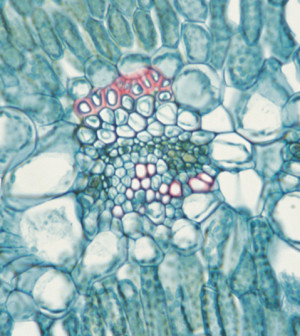- Recognizing the Signs of Hypothyroidism
- 10 Strategies to Overcome Insomnia
- Could Artificial Sweeteners Be Aging the Brain Faster?
- Techniques for Soothing Your Nervous System
- Does the Water in Your House Smell Funny? Here’s Why
- Can a Daily Dose of Apple Cider Vinegar Actually Aid Weight Loss?
- 6 Health Beverages That Can Actually Spike Your Blood Sugar
- Treatment Options for Social Anxiety Disorder
- Understanding the Connection Between Anxiety and Depression
- How Daily Prunes Can Influence Cholesterol and Inflammation
Germs That Inhabit Gut May Affect Colon Cancer Risk


Having a lower variety of bacteria in the gut is associated with colorectal cancer, according to a new study.
Researchers analyzed DNA in fecal samples collected from 47 colorectal cancer patients and 94 people without the disease to determine the level of diversity of their gut bacteria.
Study authors led by Jiyoung Ahn, at the New York University School of Medicine, concluded that decreased bacterial diversity in the gut was associated with colorectal cancer.
The study was published in the Dec. 6 issue of the Journal of the National Cancer Institute.
Colorectal cancer patients had lower levels of bacteria that ferment dietary fiber into butyrate. This fatty acid may inhibit inflammation and the start of cancer in the colon, researchers found.
However, these patients had higher levels of bacteria linked to inflammation in the mouth and gastrointestinal tract.
“Our findings are important because identification of these microbes may open the door for colorectal cancer prevention and treatment,” Ahn said in an NYU news release.
These findings are exciting, Volker Mai and Dr. J. Glenn Morris, of the University of Florida at Gainesville, wrote in an accompanying journal editorial.
However, they noted that colorectal cancer risk “is known to be influenced by host genetics, as well as factors such as obesity, nutrition and exercise; given that these factors also influence microbiota, separation of cause and effect among all of these factors may become quite difficult.”
Further studies are needed, the researchers said.
More information
The American Cancer Society has more about colorectal cancer.
Source: HealthDay
Copyright © 2026 HealthDay. All rights reserved.










